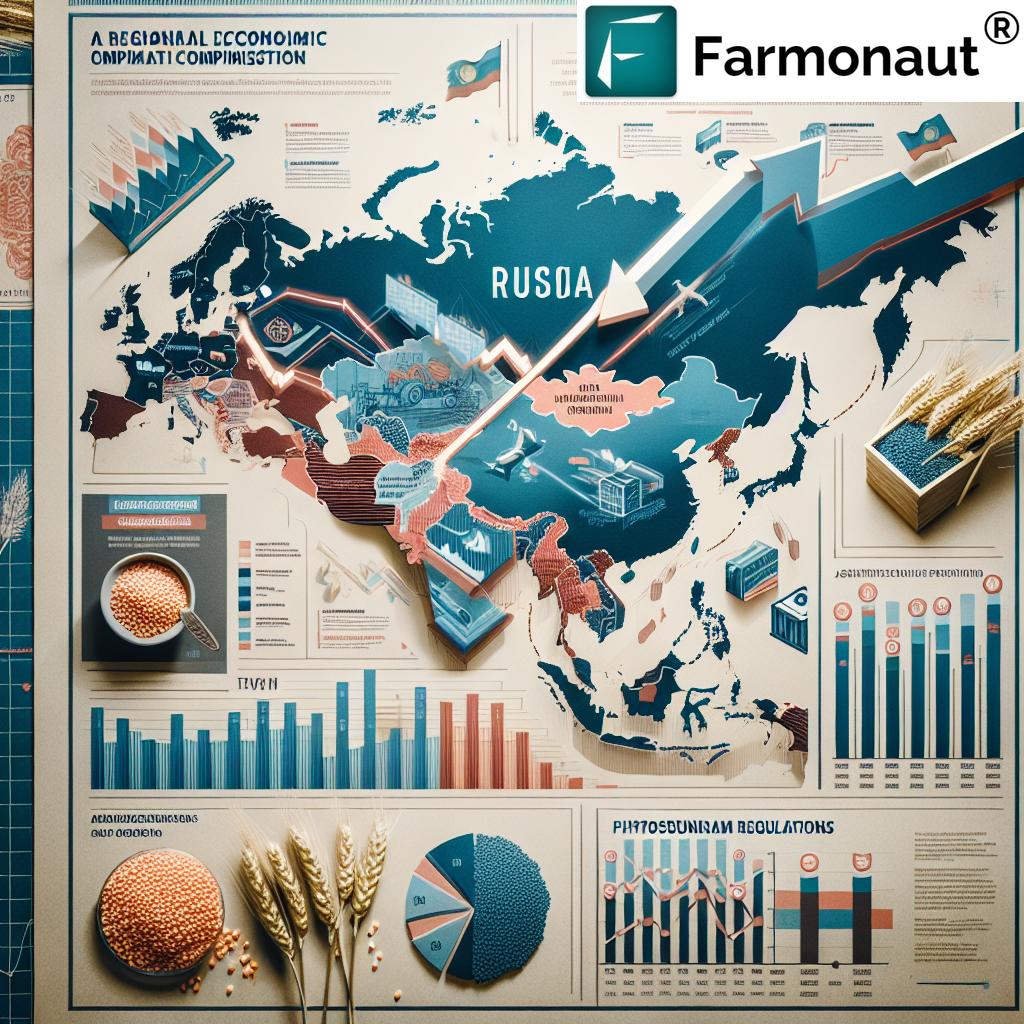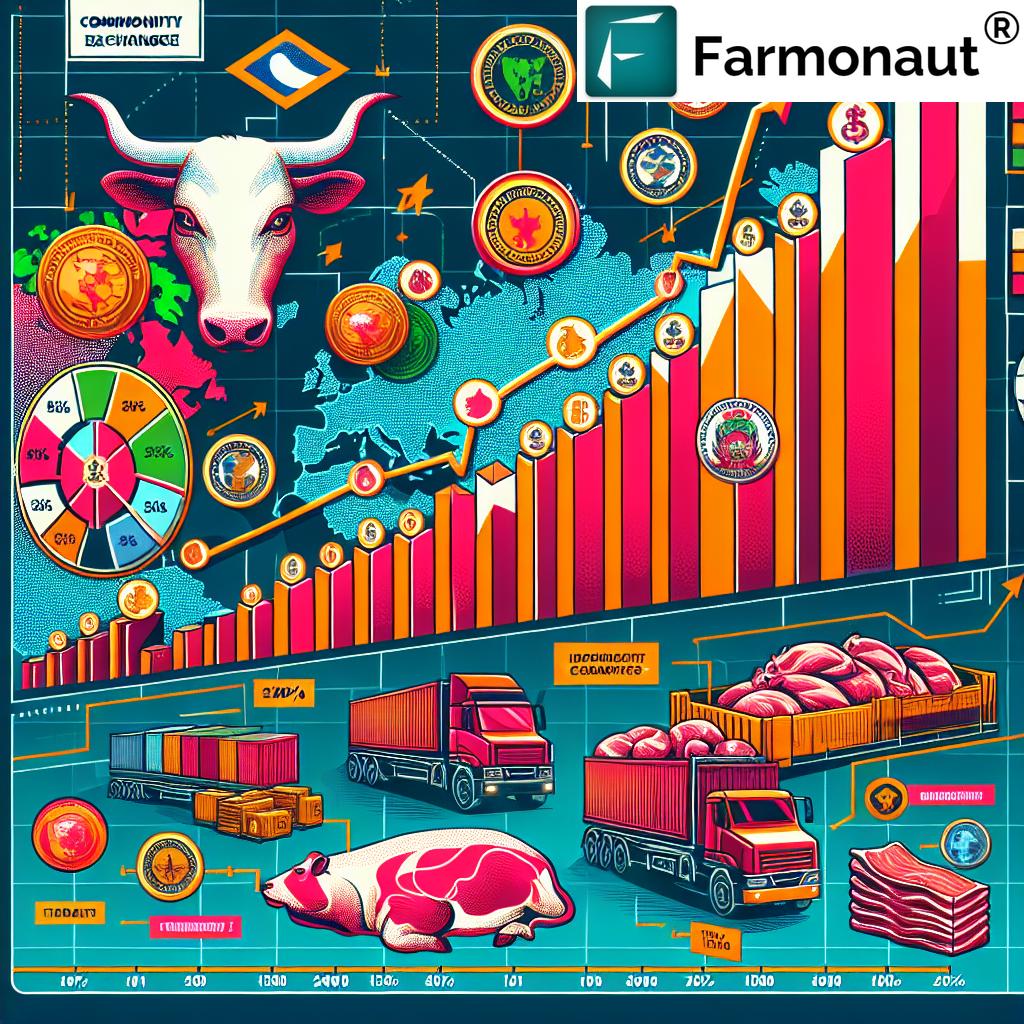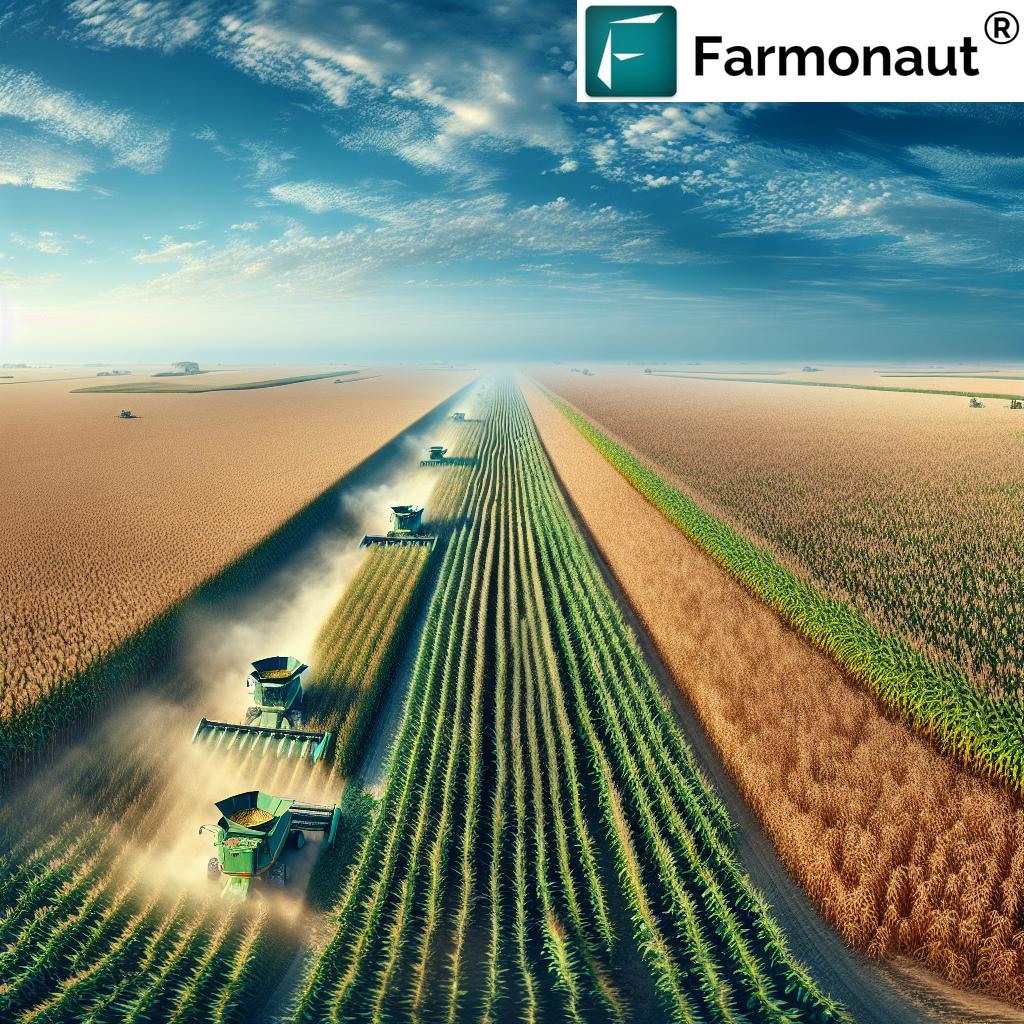Urgent: Russia’s Controversial Ban Shakes Kazakhstan’s Agricultural Exports – Trade Tensions Erupt

In a shocking turn of events, the Russia-Kazakhstan agricultural dispute has reached a boiling point as Russia’s agricultural watchdog, Rosselkhoznadzor, imposes a sweeping ban on Kazakh agricultural imports. This controversial move, set to take effect on October 17, 2024, has sent shockwaves through the Central Asian grain market and threatens to reshape Russia-Kazakhstan trade relations.
The Rosselkhoznadzor Import Restrictions: A Closer Look
The Russia grain import ban encompasses a wide range of products, including:
- Wheat
- Lentils
- Fresh produce
This decision follows earlier transit restrictions on Kazakh grain, which had already raised concerns among exporters in the region. The Rosselkhoznadzor restrictions have effectively created a Kazakh grain export ban, threatening to disrupt the entire agricultural ecosystem of Central Asia.
Kazakhstan’s Response and Diplomatic Efforts
In response to this crisis, Kazakhstan’s Agriculture Ministry has swiftly engaged in talks with Russian officials. The primary focus of these discussions is to address issues surrounding under-quarantine products and to find a resolution to the Russia Kazakhstan wheat export crisis.
As tensions escalate, Kazakh officials have taken a bold stance, calling for a review of transit tariffs on Russian goods. This move highlights the growing Central Asian trade tensions and the potential for retaliatory measures in this high-stakes agricultural trade dispute.
The Role of Phytosanitary Regulations in the Dispute
At the heart of this conflict lie complex phytosanitary regulations within the framework of the Eurasian Economic Commission. These regulations, designed to ensure food safety and prevent the spread of plant diseases, have become a contentious issue in the Russia Kazakhstan agricultural dispute.
The Kazakhstan Russia phytosanitary regulations have been a point of friction, with both sides accusing the other of non-compliance. This situation underscores the need for clearer guidelines and more effective implementation of phytosanitary measures within the Eurasian Economic Union.

Impact on Kazakhstan’s Agricultural Exports
The ban’s impact on Kazakhstan agricultural exports cannot be overstated. As one of the world’s largest wheat exporters, Kazakhstan now faces a significant threat to its economic stability. The Kazakh wheat export industry, which has been a cornerstone of the country’s agricultural sector, is now in jeopardy.
Key concerns include:
- Potential loss of market share in traditional export destinations
- Disruption of supply chains and logistics networks
- Economic impact on Kazakh farmers and agricultural businesses
The ripple effects of this ban could extend far beyond Kazakhstan’s borders, potentially reshaping the entire Central Asian grain market.
The Broader Implications for Central Asian Trade
This agricultural trade dispute between Russia and Kazakhstan is more than just a bilateral issue. It has far-reaching implications for the entire region, potentially exacerbating existing Central Asian trade tensions.
Other countries in the region are closely watching the situation, concerned about the potential for similar restrictions on their own agricultural exports. This crisis has highlighted the fragility of regional trade agreements and the need for more robust dispute resolution mechanisms within the Eurasian Economic Commission agriculture framework.
Explore Farmonaut’s Satellite Weather API for Agricultural Insights
The Role of Transit Tariffs in the Conflict
An often-overlooked aspect of this dispute is the issue of transit tariffs agriculture. Kazakhstan’s call for a review of transit tariffs on Russian goods is a strategic move that could have significant implications for Russia-Kazakhstan trade relations.
These tariffs, which affect the cost of transporting goods across borders, have long been a point of contention between the two nations. The current crisis has brought this issue to the forefront, potentially leading to a broader renegotiation of trade terms between Russia and Kazakhstan.
The Need for Dialogue and Cooperation
As the situation continues to unfold, it’s clear that a resolution to this Russia Kazakhstan agricultural dispute will require extensive dialogue and cooperation. Both nations have much to lose from a prolonged trade war, and finding common ground is crucial for the stability of the region’s agricultural sector.
Key areas for negotiation include:
- Harmonization of phytosanitary standards
- Transparent implementation of import and export regulations
- Fair and equitable transit tariff structures
- Mechanisms for swift resolution of future trade disputes
Access Farmonaut’s API Developer Docs for Advanced Agricultural Data
The Future of Russia-Kazakhstan Trade Relations
The outcome of this crisis will undoubtedly shape the future of Russia-Kazakhstan trade relations. While the immediate focus is on resolving the current dispute, both nations must also consider the long-term implications of their actions.
Potential scenarios include:
- A swift resolution leading to strengthened trade ties
- Prolonged negotiations resulting in a restructuring of bilateral trade agreements
- Escalation of tensions leading to broader economic consequences
The path forward will require diplomacy, compromise, and a shared commitment to maintaining the stability of the Central Asian agricultural sector.
Conclusion: A Watershed Moment for Central Asian Agriculture
The Russia grain import ban on Kazakh products marks a watershed moment in Central Asian agricultural trade. As both nations navigate this complex and contentious issue, the eyes of the world are watching closely.
The resolution of this dispute will not only determine the future of Kazakhstan agricultural exports but will also set a precedent for how agricultural trade disputes are handled within the Eurasian Economic Union. As negotiations continue, it’s clear that the stakes are high, not just for Russia and Kazakhstan, but for the entire region’s agricultural sector.
In these uncertain times, staying informed about agricultural developments is crucial. Farmers and agribusinesses can leverage cutting-edge technology to navigate these challenges. Consider using Farmonaut’s advanced satellite and weather data services to make informed decisions about crop management and market trends.
As this situation continues to evolve, we’ll keep you updated on the latest developments in this critical Russia Kazakhstan agricultural dispute. Stay tuned for more insights into how this crisis may reshape the landscape of Central Asian agriculture.
















